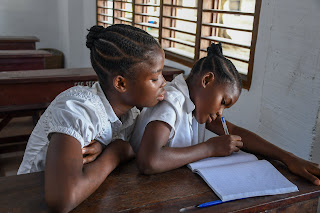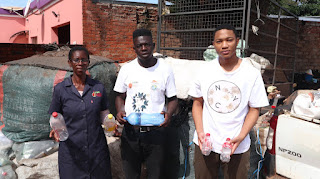Every girl has the right to a quality education
.jpeg)
The DRC has made significant progress towards universal access to primary education in recent decades. Indeed, the net attendance rate increased from 52% in 2001 to 78% in 2018, an increase of 26 percentage points in 17 years. However, about 4 million children aged 6-11 are still out of school, representing about 21% of the total children in this age group. The preschool rate for children aged 3 to 5 is only 5%. This level is considered very low given the benefits that pre-schooling can bring to young children to improve entry into primary school and cognitive and social development from an early age. Moreover, repetition and dropout rates at the primary level undoubtedly have repercussions on the secondary level. Indeed, only a third of children are enrolled in secondary school. Whatever the characteristics or dimensions considered (place of residence, economic well-being and education of the mother), the gaps in schooling widen as the level of education increases. These disparities b

.jpeg)
.jpeg)

